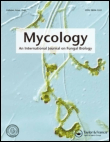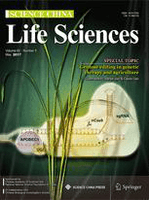
Biology Open
Scope & Guideline
Connecting Ideas and Discoveries in the World of Biology.
Introduction
Aims and Scopes
- Interdisciplinary Biological Research:
The journal publishes research that spans multiple biological disciplines, including molecular biology, developmental biology, ecology, and physiology, reflecting a commitment to comprehensive biological understanding. - Methodological Innovation:
Biology Open showcases innovative experimental techniques and methodologies, such as CRISPR, imaging technologies, and bioinformatics, that advance biological research. - Model Organisms and Systems:
The journal frequently features studies using diverse model organisms, including Drosophila, zebrafish, and various mammalian systems, to investigate fundamental biological processes. - Environmental and Ecological Impact:
Research addressing the ecological implications of biological phenomena, including climate change effects on species and ecosystem dynamics, is a significant focus area. - Health and Disease Mechanisms:
Papers exploring the biological underpinnings of health and disease, including cancer biology and neurodegenerative disorders, contribute to the journal's relevance in translational research.
Trending and Emerging
- Advanced Imaging and Analysis Techniques:
There is a growing emphasis on high-resolution imaging and quantitative analysis methods, which are increasingly featured in publications to elucidate complex biological processes. - Synthetic Biology and Biotechnology:
The rise of synthetic biology and its applications in biotechnology is a prominent trend, with studies focusing on gene editing, metabolic engineering, and the development of novel biotechnological tools. - Neurobiology and Cognitive Sciences:
Research in neurobiology, particularly studies addressing the cellular and molecular mechanisms underlying neurodegenerative diseases and cognitive functions, is on the rise, reflecting increased interest in brain health. - Environmental Adaptation and Climate Change Research:
Emerging studies focus on how organisms adapt to changing environmental conditions, particularly in the context of climate change, highlighting the journal's commitment to addressing global challenges. - Microbiome Research:
The exploration of microbiomes and their influence on host biology and health is gaining traction, with an increasing number of articles dedicated to understanding these complex interactions.
Declining or Waning
- Traditional Genetic Studies:
While genetic studies remain important, there has been a noticeable decline in papers focusing solely on classical genetics, as researchers increasingly adopt integrative approaches that combine genetics with other biological disciplines. - Basic Ecological Studies:
The focus on basic ecological studies has waned, with fewer publications dedicated solely to descriptive ecology, as the journal moves towards more applied research addressing ecological challenges. - Single-Discipline Focused Research:
Research that concentrates on a single biological discipline without interdisciplinary connections is becoming less common, as the journal encourages more holistic approaches to biological questions.
Similar Journals

Journal of Experimental Zoology Part A-Ecological and Integrative Physiology
Advancing ecological insights through integrative physiology.The Journal of Experimental Zoology Part A - Ecological and Integrative Physiology, published by WILEY, is a distinguished peer-reviewed journal focusing on ecological and evolutionary physiology, providing a robust platform for research that bridges both ecological and integrative physiological concepts. With an impressive impact factor and recognition as a Q1 journal in both Animal Science and Zoology and Ecology, Evolution, Behavior and Systematics in 2023, it positions itself as a leader in advancing our understanding of organismal biology and environmental interactions. The journal is committed to open access, offering researchers and professionals worldwide the opportunity to share and disseminate their findings freely. Since its inception in 2017, it has rapidly gained prominence—ranking within the top percentiles of Scopus Ranks across several disciplines, including genetics and molecular biology. This not only underscores its relevance but also highlights its vital role in facilitating interdisciplinary approaches essential for addressing contemporary biological challenges. Researchers, educators, and students alike will find in this journal a valuable resource for cutting-edge studies and innovative methodologies in the field.

BRAZILIAN ARCHIVES OF BIOLOGY AND TECHNOLOGY
Fostering interdisciplinary collaboration for impactful research.BRAZILIAN ARCHIVES OF BIOLOGY AND TECHNOLOGY is a distinguished peer-reviewed journal that has become an essential resource in the field of multidisciplinary research since its inception in 1998. Published by the Instituto de Tecnologia do Paraná, the journal has successfully transitioned to an Open Access model since 2001, promoting widespread dissemination of knowledge across global research communities. With an impressive Q2 ranking and a Scopus percentile of 66th in the discipline, it ranks #58 out of 171 in its category, solidifying its influence and relevance in advancing scientific dialogue. The journal embraces diverse topics within biology and technology, encouraging interdisciplinary collaboration and innovation. Scholars, professionals, and students will find an invaluable platform for sharing groundbreaking research, emerging ideas, and critical reviews in a vibrant academic environment. For more information, please visit our website.

FASEB BioAdvances
Exploring Breakthroughs in Biological ResearchFASEB BioAdvances, published by WILEY, is an esteemed open-access journal dedicated to advancing the fields of biochemistry, molecular biology, and physiology. Since its inception in 2019, the journal has rapidly established a significant presence within the academic community, boasting an impressive impact factor reflective of its Q2 and Q3 standings across various categories, including Biochemistry, Genetics and Molecular Biology, Cancer Research, Molecular Medicine, and Physiology. The journal aims to disseminate high-quality research and innovative findings to enhance the understanding of biological processes, making it a vital resource for researchers, professionals, and students alike. With its commitment to open access, FASEB BioAdvances ensures that groundbreaking research is available to a global audience, facilitating collaboration and exploration in these rapidly evolving scientific domains.

Journal of Biological Research-Bollettino della Societa Italiana di Biologia Sperimentale
Unlocking the Secrets of Genetics and Molecular BiologyThe Journal of Biological Research-Bollettino della Societa Italiana di Biologia Sperimentale is a premier peer-reviewed journal published by PAGEPRESS PUBL, focusing on a diverse array of topics within the broad field of biological research. Established as an Open Access journal since 2009, it facilitates the dissemination of scientific knowledge across the globe, enhancing visibility and accessibility for researchers, professionals, and students alike. With an ISSN of 1826-8838 and E-ISSN 2284-0230, this journal serves as a platform for innovative studies in Biochemistry, Genetics, and Molecular Biology, with a growing emphasis on Plant Science. Although currently categorized in the Q4 quartile for various sub-disciplines, the journal is dedicated to fostering interdisciplinary collaboration and advancing research quality. The latest Scopus rankings indicate a burgeoning presence in the academic community, positioning itself at significant ranks within the fields it covers. With publication coverage extending from 2011 to 2024, the journal aims to push the frontiers of biological research while adapting to the evolving demands of the scientific community.

Scientific Reports
Advancing Knowledge, One Report at a Time.Scientific Reports, published by the esteemed NATURE PORTFOLIO, is a prominent multidisciplinary journal that has been making significant strides in scientific communication since its inception in 2011. With an impressive impact factor and ranked in the Q1 category of multidisciplinary journals, it holds a respected position, placing it at #14 out of 171 according to Scopus rankings, reflecting its high citation rates and robust academic contributions in the 92nd percentile. The journal operates under an Open Access model, enabling broad dissemination of research findings and advancing scientific knowledge globally. Based in the United Kingdom, with offices in Germany, Scientific Reports is committed to publishing high-quality, peer-reviewed research across diverse fields, catering to the needs of researchers, professionals, and students alike, fostering collaboration and innovation in the scientific community.

BMC Biology, a prominent open access journal published by BMC since 2003, offers a dynamic platform for the dissemination of research in the fields of biology, biochemistry, and biotechnology. Based in the United Kingdom, this journal showcases high-impact studies that cover a broad range of topics including cell biology, developmental biology, ecology, and structural biology, reflecting its commitment to advancing knowledge in the life sciences. With an impressive record of Q1 rankings across multiple categories in 2023, including Agricultural and Biological Sciences and Biochemistry, Genetics and Molecular Biology, BMC Biology stands out as a leader in these disciplines. Researchers will find a robust forum for innovative and high-quality research due to its substantial Scopus rankings, which place it within the top 10% of its field. The journal's open access policy facilitates widespread dissemination, ensuring that critical biological research is accessible to a diverse global audience. Whether you are a researcher, student, or professional in the biological sciences, BMC Biology is essential for staying informed about the latest advancements and developments in this ever-evolving field.

COMPTES RENDUS BIOLOGIES
Illuminating Complex Biological Questions Since 1959COMPTES RENDUS BIOLOGIES, published by the esteemed Académie des Sciences, is a prominent journal based in France that contributes significantly to the fields of Agricultural and Biological Sciences, Biochemistry, Genetics and Molecular Biology, as well as Immunology and Microbiology. With a notable Q3 ranking in several categories as of 2023, this journal serves as an essential platform for disseminating groundbreaking research and advancements in these disciplines. Access is currently available under open access options, enhancing the reach and accessibility of its published findings. The journal has been in continuous publication since 1959, with a current focus extending to 2024, ensuring that it remains at the forefront of scientific communication. With its diverse scope and commitment to quality research, COMPTES RENDUS BIOLOGIES plays a crucial role in fostering dialogue and collaboration among researchers, professionals, and students who are dedicated to understanding and addressing complex biological questions.

Mycology-An International Journal On Fungal Biology
Advancing Knowledge in Fungal ResearchMycology: An International Journal on Fungal Biology, published by Taylor & Francis Ltd, stands at the forefront of fungal research, facilitating the dissemination of knowledge across the diverse fields of infectious diseases, microbiology, and plant science. Established as an Open Access journal since 2010, it offers researchers free and immediate access to high-quality articles that advance our understanding of fungal biology and its applications. With a commendable ranking in Q2 for Infectious Diseases and Microbiology, and Q1 for Plant Science as of 2023, it positions itself as a vital resource for the global scientific community. The journal, conveniently located in the United Kingdom, is committed to publishing rigorous research that stimulates discussion and fosters collaboration among academics, practitioners, and students alike. By providing a platform for innovative studies and critical reviews, Mycology continues to play an essential role in unraveling the complexities of fungal organisms and their profound implications in health, agriculture, and ecosystem dynamics.

GENERAL PHYSIOLOGY AND BIOPHYSICS
Connecting the Dots Between Physiology and BiophysicsGENERAL PHYSIOLOGY AND BIOPHYSICS, published by AEPRESS SRO, is a pivotal journal in the fields of biophysics and physiology, dedicated to advancing knowledge and fostering research in these increasingly vital disciplines. Established in 1983 and set to converge in 2024, the journal provides a platform for scholarly articles that explore the intricate relationships between biological systems and physical principles. Its current category quartiles include Q3 in Biophysics and Q4 in Physiology, demonstrating a growing influence among researchers, with current Scopus ranks reflecting its commitment to quality and relevance. Despite not being an open-access publication, the journal remains a valuable resource for professionals and students aiming to stay informed on the latest discoveries and methodologies. By supporting interdisciplinary research and innovation, GENERAL PHYSIOLOGY AND BIOPHYSICS plays a crucial role in shaping the understanding of complex biological interactions and applications in medicine.

Science China-Life Sciences
Leading the charge in innovative biological solutions.Science China-Life Sciences, published by SCIENCE PRESS, is a premier academic journal that stands at the forefront of innovative research and discoveries in the fields of life sciences, spanning crucial areas such as agricultural and biological sciences, biochemistry, genetics, molecular biology, and environmental science. With an impressive Q1 ranking in its respective categories—ranked #5 in Agricultural and Biological Sciences, #7 in Environmental Science, and #17 in Biochemistry, Genetics and Molecular Biology—this journal is recognized for its rigorous peer-review process and significant impact within the scientific community, as reflected in its high percentiles (97th and 92nd). Maintained as an Open Access publication, it ensures broad dissemination and accessibility of research findings, fostering collaboration and knowledge sharing among researchers, professionals, and students alike. Given its position in the research landscape and its commitment to high-quality scholarship, Science China-Life Sciences plays a vital role in advancing life sciences research, supporting scientists in addressing global challenges through innovative biological solutions.